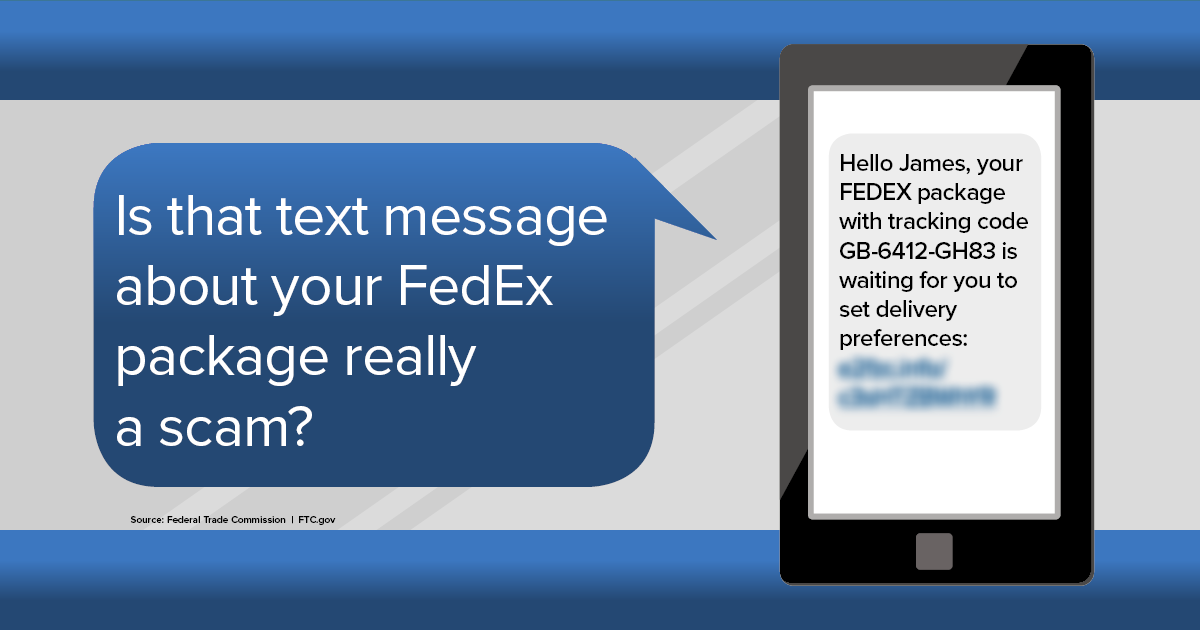You may be skeptical when someone you don’t know sends you a text message you didn’t expect and it tells you to click on a link. Maybe that little voice in your head starts talking to you. I know mine does. It says, “Hmm, this could be a scam. Maybe someone wants to steal my personal information. Or get me to pay for something.”
I guess that's why scammers come up with new stories all the time, like a package tracking scam we're hearing about. Here's how it works.
Scammers send a text message with a fake shipment tracking code and a link to update your delivery preferences. In this case, the message says it’s from FedEx.

But they might use the name of another well-known shipping company, or the good old U.S. Postal Service.
Cue that skeptical little voice in your head. Here’s what it might be thinking:
- “Was I expecting a package delivery?”
- “Did I send a package to someone?”
- “Did I ask for text notifications?”
Tip: If you get an unexpected text message, don’t click on any links. If you think it could be legit, contact the company using a website or phone number you know is real. Don’t use the information in the text message.
In this version of the scam the link takes you to a fake Amazon website. There, you're invited to take a customer satisfaction survey. And you might just win a free prize. But to get it, you have to give them your credit card number to pay for shipping.
Hopefully that wise little voice in your head is thinking:
- “I shouldn't have clicked that link!”
- “Why would a link to my package delivery preferences take me to an unrelated website?”
- “You said the prize was free, but now I need to pay. What else am I agreeing to pay for?”
- “I really shouldn’t have clicked on that link!”
Tip: Some companies offer so-called “free trials” that come with hidden costs. Here’s what you should consider before you sign up for a free trial offer.
Scammers may be turning to text messages as a new tactic. But there’s a lot you can do right now to protect yourself. Read How to Recognize and Report Spam Text Messages to learn what to do about spam text messages and how to report them.

In reply to I received a text from “FedEx by jerbet1984
In reply to Don’t get greedy for an I by MartyAnn
In reply to Got a text supposedly from by LeeLA
In reply to I thought it was strange that by BillG
In reply to My mother got a text that by Robzilla
In reply to I get that message saying by SherryAsh
In reply to I have submitted more than 50 by BSCritic
Pagination